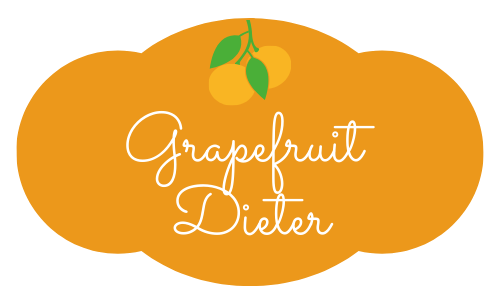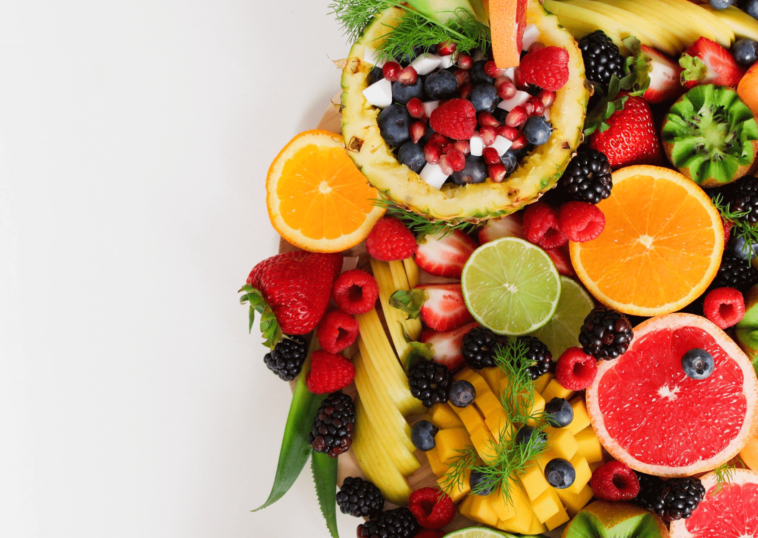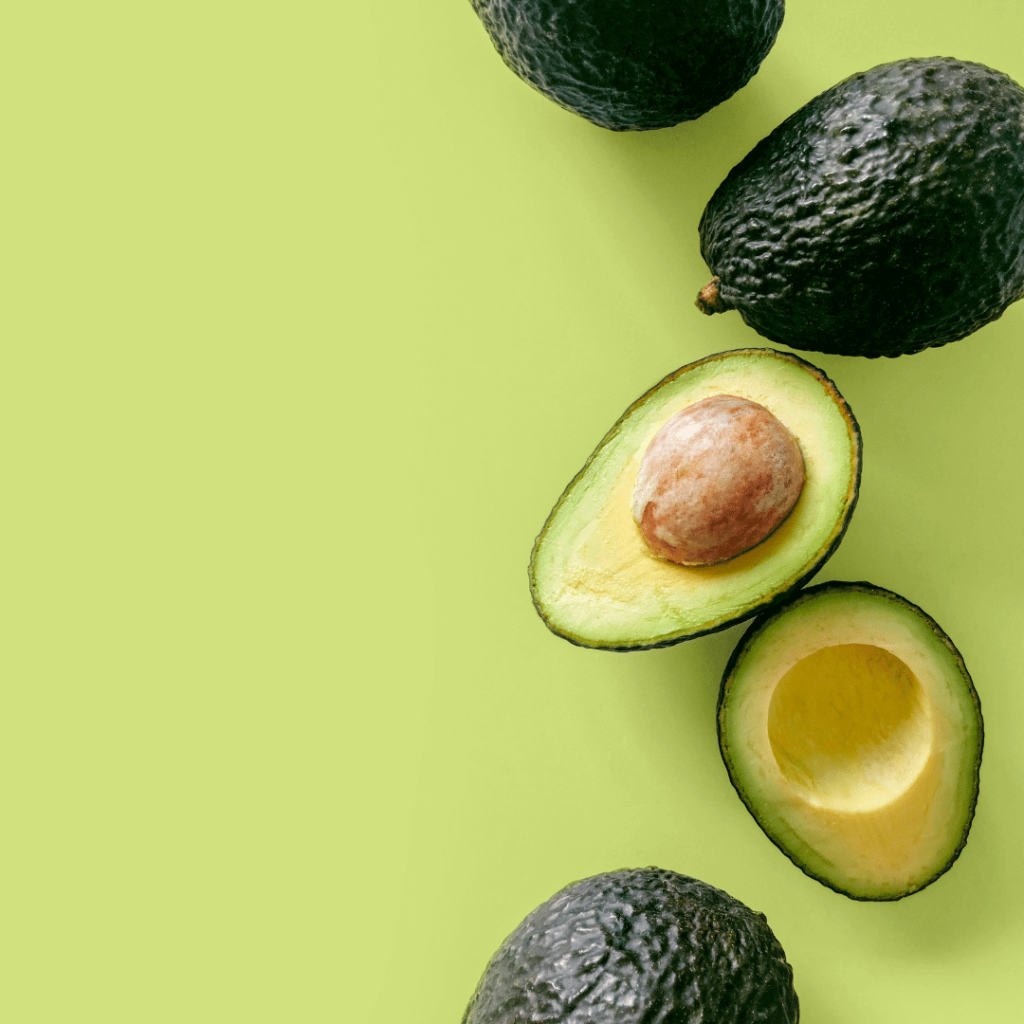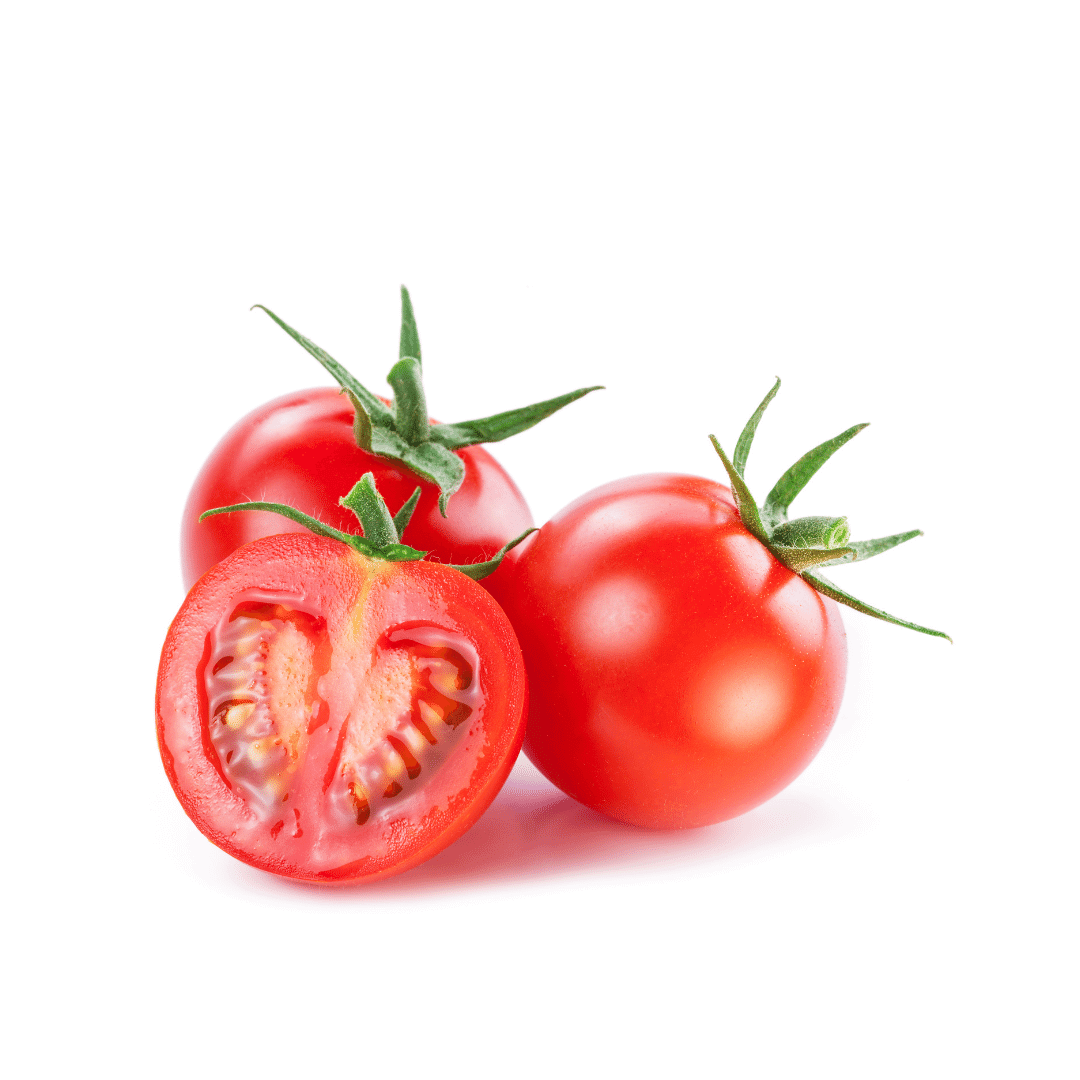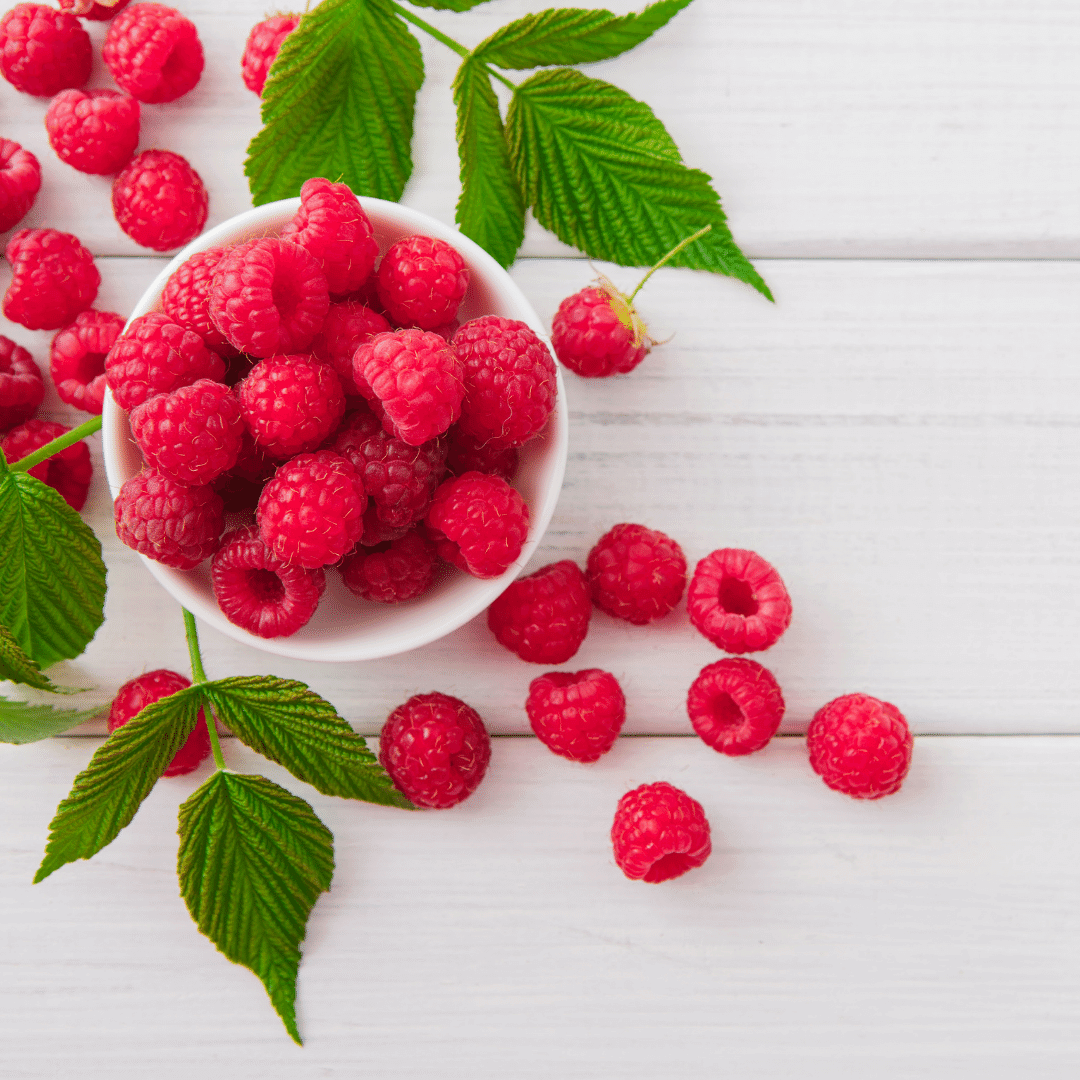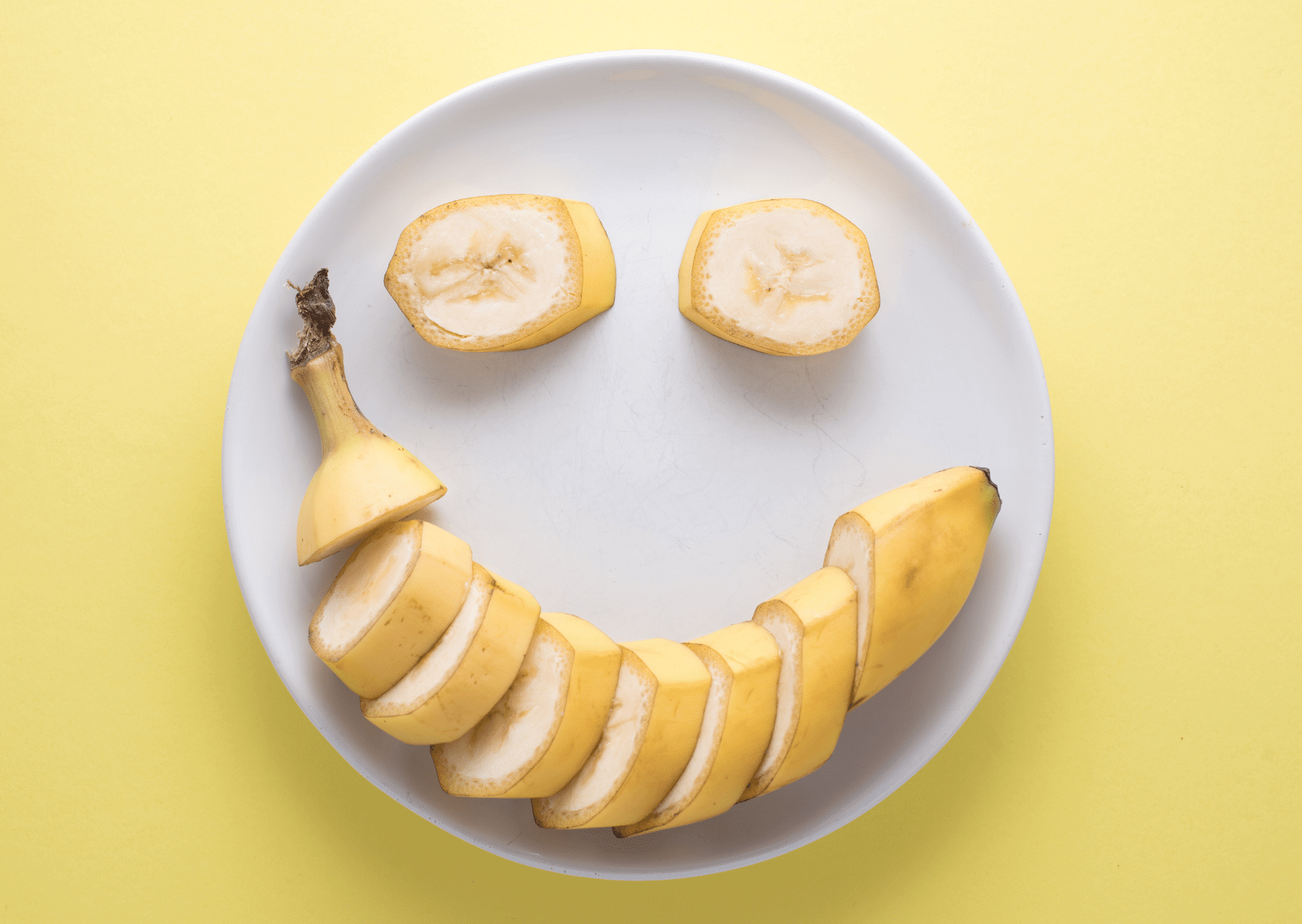You try the keto diet for weight loss, but all that butter, cheese, and meat can get heavy at times. And so lightening up your meals with a few fruits seems like a smart move, doesn’t it?
Not so fast! With this high fat eating plan, carbohydrates should not exceed 5% of your calorie intake to stay in ketosis ( a state where your body burns fat for energy rather than carbohydrates). And as you know most fruits are quite high in carbohydrates. But following a low-carb, high-fat diet like the ketogenic diet doesn’t mean you have to give up all fruits and vegetables.
Take blueberries, for example: a 150g has about 17.4g of net carbs (i.e. total carbs minus fiber), which is roughly the equivalent of one full day of carbs on the keto diet (one is supposed to eat less than 20g of net carbs per day). So, in summary you can’t eat most fruits on a keto diet.
Also, the sweetest fruits are usually the tastiest like peaches and melons. But you don’t necessarily have to get rid of fruits entirely on the keto diet. Here are some fruits that can be eaten in moderation without breaking your ketosis.
Keto Fruits
Avocados
Most people “think” avocados and tomatoes are vegetables, but technically they are both fruits. And since they’re fruits, we’ve included them in our low carb fruit list. Avocados contain 8.5 grams of carbohydrates per 100 grams; which is a little high. But the good news is, they have 6.7 grams of dietary fiber (oh yeah), which reduces the amount of net carbs to 1.8g.
If you’re on a low-carb ketogenic diet, there really are few foods that can compare to avocado. They taste great and are filled with good fats.
There are endless ways to prepare and eat avocados. We can eat them on our salads, alone for lunch, on a hamburger without bread or in guacamole. You certainly can make countless keto recipes using avocados.
Tomatos
Another fruit (at least scientifically) that is often mistaken for a vegetable. Raw tomatoes contain 3.89 grams of carbohydrate per 100 grams.
They also contain on average 1.2 grams of dietary fiber, for a total of 2.69 grams of net carbs.
Tomatoes can be eaten raw in salads, keto chili, with an avocado in a burger without bread, and so on! There are really tons of different ways to add tomatoes to your diet.
A little warning: Tomatoes can cause inflammation (and therefore an increase in blood sugar) in those with autoimmune diseases.
This is because tomatoes are part of the nightshade family and for some people they can cause significant allergic reactions. These delicious fruits should therefore be avoided if you follow an AIP (Auto-Immune Protocol).
Raspberry
Raspberries are also part of the berry family which doesn’t have a lot of carbohydrates. They contain 11.94 grams of carbohydrates per 100 grams… Ouch!
The nice surprise is that they contain 6.5 grams of dietary fiber, which gives us a total net carbs of 5.44 grams.
Raspberries are great as a snack, on a salad, in a smoothie or on a keto pancake. They are also great because they can easily be frozen and used with other snacks.
Blackberries
It might surprise you, but blackberries are one of the lowest carb fruits. These little berries contain a total of 9.61 grams of carbohydrate per 100 grams, which is a bit high.
Luckily, they also contain a lot of dietary fiber: 5.3 grams! This brings the total net carbs to 4.31 grams, which is awesome.
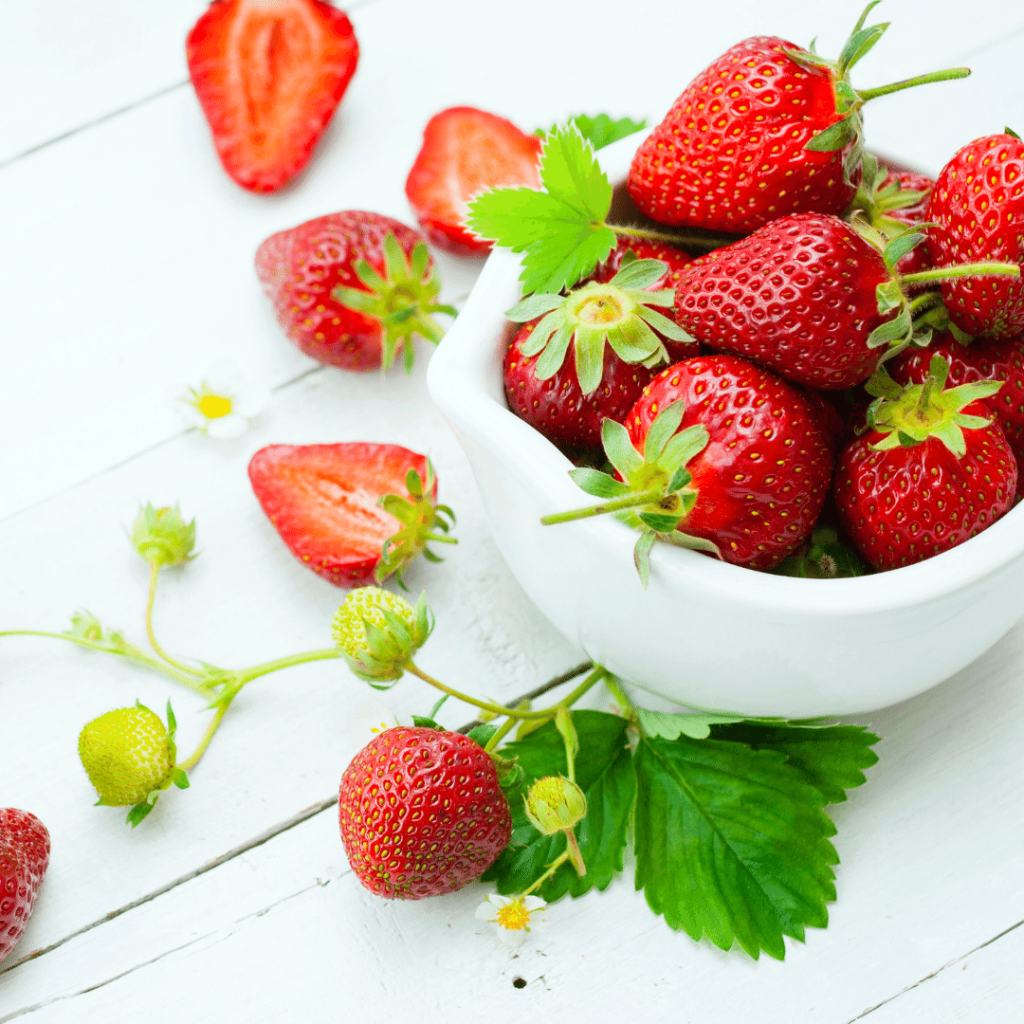 Strawberry
Strawberry
There aren’t many nicer things in life than fresh strawberries on a hot summer day.
The great news is that you can continue to eat these delicious berries on a low-carb diet like the keto diet.
These bright red little berries contain 7.68 grams of carbohydrate per 100 grams, including 2.0 grams of dietary fiber, bringing the net total carbohydrate to 5.68 grams.
Like blackberries and raspberries, strawberries are excellent on salads, as a dessert, in smoothies or as a snack.
Olives
Olives are another fruit that goes very well on a ketogenic diet (yes, olives are really fruits). Ten small olives contain about 3 g of fat and about 1.5 g of carbohydrates.
100 g of black olives contains only 5 g of carbohydrates, a whopping 35.8 g of fat and 3.8 g of fiber.
Olives are an excellent source of sodium which is crucial when following a low carbohydrate diet.
Lemon
Lemons are extremely rich in vitamin C, low in carbohydrates and are a great source of vitamin C, potassium, and calcium.
Lemon is a good keto food both with salad dressings or as a splash in tea and mineral water. Although lemons are acidic, once they are in your body they turn into an alkaline substance. This makes them one of the healthiest foods you can eat to get rid of toxins.
It cleans and disinfects everything it comes in contact with – including the toxins in the urine.
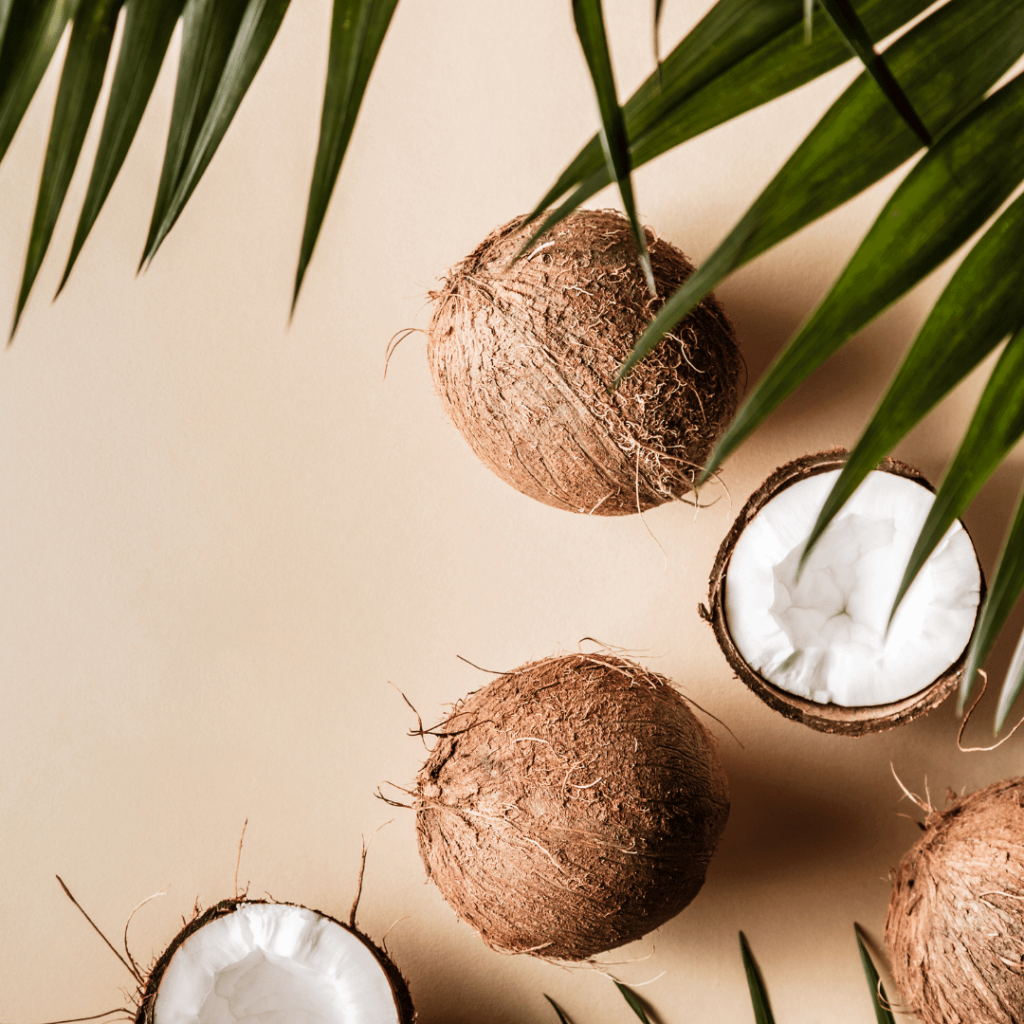 Coconut
Coconut
Coconuts are one of the most generous sources of good fats and is also very low in carbohydrates.
50g of grated coconut contains only 3.7g of carbohydrates. Therefore, they can be included in your keto diet in moderation.
And of course, you can also use coconut oil, coconut vinegar and coconut flour during keto.
Other low-carb keto fruits
As said, on a keto diet you don’t have to abolish fruits completely. Below is a list of “sweet” fruits that have passed the “carbohydrate test” and that are also keto diet friendly.
Nevertheless, you should see the following fruits more like sweets and reduce consumption to a minimum.
- Grapefruit: Half a grapefruit contains about 7g of carbohydrates and 40mg of vitamin C. We’ve written a separate detailed about eating grapefruit on keto that you might want to check out.
- Kiwi: A medium size (70 g) contains 8 g of carbohydrates.
- Cherries: They contain 8 g of carbohydrates per 100 g.
- Peach: A medium-sized (150g) peach contains 13g of carbohydrates.
Forbidden Keto Fruits
The “blacklist” fruits of the ketogenic diet may be part of your existing diet. And unfortunately, they’re just not allowed when you’re trying to keep your daily carbs below 5%.
Some of the popular forbidden keto fruits:
- Bananas: 20 g carbohydrates, 17 g of which are sugar
- Grapes: 15.6g carbohydrates, of which 15.4g sugar
- Mango: 12.5g carbohydrates, of which 12.4g sugar
- Pineapple: 12.4g carbohydrates, of which 12.2g sugar
- Plums: 10g carbohydrates, 1 Og of which is sugar
- Oranges: 8.4g carbohydrates, of which 8.3g sugar
- Cherries: 13.3g carbohydrates, of which 13.3g is sugar
- Pears: 12.4g carbohydrates, of which 10.2 are sugar
That’s it,
We hope that this list helped you get an idea of what fruits are good for keto, and which aren’t. In the comments below, tell us about any other keto fruits that you believe worth adding to the list.
